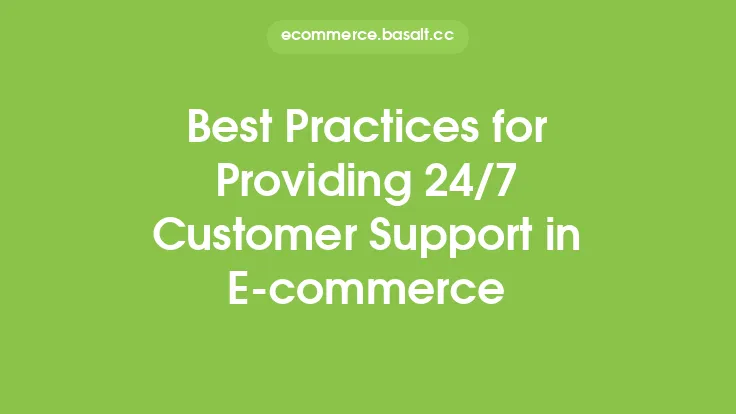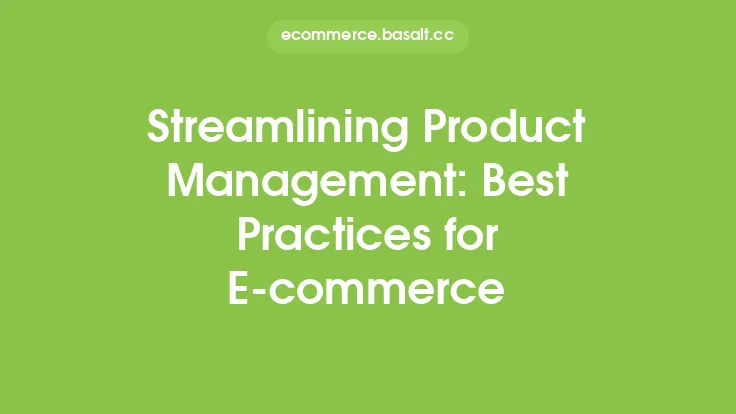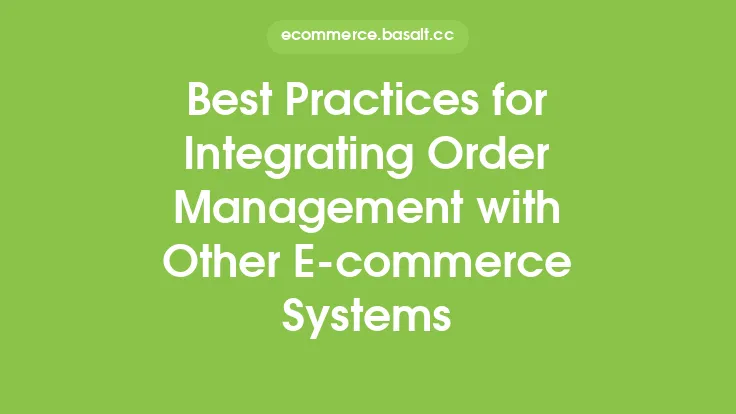As a small business owner in the e-commerce space, managing customer relationships is crucial for driving sales, improving customer satisfaction, and fostering loyalty. A well-implemented Customer Relationship Management (CRM) system can help small businesses achieve these goals by providing a centralized platform for managing customer interactions, tracking customer behavior, and analyzing customer data. In this article, we will explore the best practices for implementing and using a CRM system in a small e-commerce business.
Key Features of an E-commerce CRM
A good e-commerce CRM should have several key features that enable small businesses to manage customer relationships effectively. These features include contact management, sales management, marketing automation, customer service and support, and analytics and reporting. Contact management allows businesses to store customer information, such as contact details, order history, and communication preferences. Sales management enables businesses to track leads, manage sales pipelines, and analyze sales performance. Marketing automation allows businesses to automate marketing campaigns, such as email marketing and social media marketing. Customer service and support features enable businesses to manage customer inquiries, issues, and feedback. Analytics and reporting provide insights into customer behavior, sales performance, and marketing effectiveness.
Implementing a CRM System
Implementing a CRM system in a small e-commerce business requires careful planning and execution. The first step is to define the business's CRM goals and objectives, such as improving customer satisfaction, increasing sales, or enhancing customer loyalty. The next step is to choose a CRM system that meets the business's needs and budget. There are many CRM systems available, ranging from basic contact management tools to advanced marketing automation platforms. Once the CRM system is chosen, the business should configure it to meet its specific needs, such as customizing fields, creating workflows, and integrating with other systems. The business should also train its staff on how to use the CRM system effectively and ensure that all customer interactions are logged and tracked.
Data Management and Integration
Effective data management and integration are critical to the success of a CRM system. The CRM system should be able to collect, store, and analyze customer data from various sources, such as website interactions, social media, email marketing, and customer service. The system should also be able to integrate with other systems, such as e-commerce platforms, payment gateways, and marketing automation tools. Data management involves ensuring that customer data is accurate, up-to-date, and complete. This can be achieved by implementing data validation rules, data normalization, and data deduplication. Integration involves connecting the CRM system to other systems and tools, such as APIs, webhooks, and third-party connectors.
Security and Compliance
Security and compliance are essential considerations when implementing a CRM system. The CRM system should be able to protect customer data from unauthorized access, theft, and misuse. This can be achieved by implementing security measures, such as encryption, firewalls, and access controls. The system should also be compliant with relevant regulations, such as GDPR, CCPA, and HIPAA. Compliance involves ensuring that the CRM system meets the requirements of relevant regulations, such as data subject rights, data breach notification, and data transfer agreements.
Best Practices for Using a CRM System
To get the most out of a CRM system, small e-commerce businesses should follow best practices for using the system. These best practices include regularly updating customer information, tracking customer interactions, analyzing customer behavior, and using insights to inform marketing and sales strategies. Regularly updating customer information ensures that the CRM system has accurate and up-to-date information about customers. Tracking customer interactions enables businesses to understand customer behavior and preferences. Analyzing customer behavior provides insights into customer needs and preferences. Using insights to inform marketing and sales strategies enables businesses to create targeted and effective marketing campaigns.
Measuring CRM Success
Measuring the success of a CRM system is critical to understanding its impact on the business. There are several metrics that can be used to measure CRM success, such as customer satisfaction, customer retention, sales revenue, and marketing ROI. Customer satisfaction can be measured using surveys, feedback forms, and Net Promoter Score (NPS). Customer retention can be measured by tracking customer churn rates and loyalty programs. Sales revenue can be measured by tracking sales performance and revenue growth. Marketing ROI can be measured by tracking the return on investment of marketing campaigns. By tracking these metrics, small e-commerce businesses can understand the effectiveness of their CRM system and make data-driven decisions to improve customer relationships and drive business growth.
Common CRM Mistakes to Avoid
There are several common CRM mistakes that small e-commerce businesses should avoid. These mistakes include not defining clear CRM goals, not choosing the right CRM system, not configuring the CRM system correctly, not training staff, and not regularly updating customer information. Not defining clear CRM goals can lead to a lack of direction and focus. Not choosing the right CRM system can lead to a system that does not meet the business's needs. Not configuring the CRM system correctly can lead to a system that is not optimized for the business's processes. Not training staff can lead to a lack of adoption and usage. Not regularly updating customer information can lead to inaccurate and outdated information.
Future of E-commerce CRM
The future of e-commerce CRM is exciting and rapidly evolving. Emerging trends, such as artificial intelligence, machine learning, and the Internet of Things (IoT), are expected to shape the future of CRM. Artificial intelligence can be used to automate customer service, personalize marketing campaigns, and predict customer behavior. Machine learning can be used to analyze customer data, identify patterns, and make predictions. The Internet of Things (IoT) can be used to collect customer data from connected devices, such as wearables, smartphones, and home appliances. By embracing these emerging trends, small e-commerce businesses can stay ahead of the competition and provide exceptional customer experiences.





